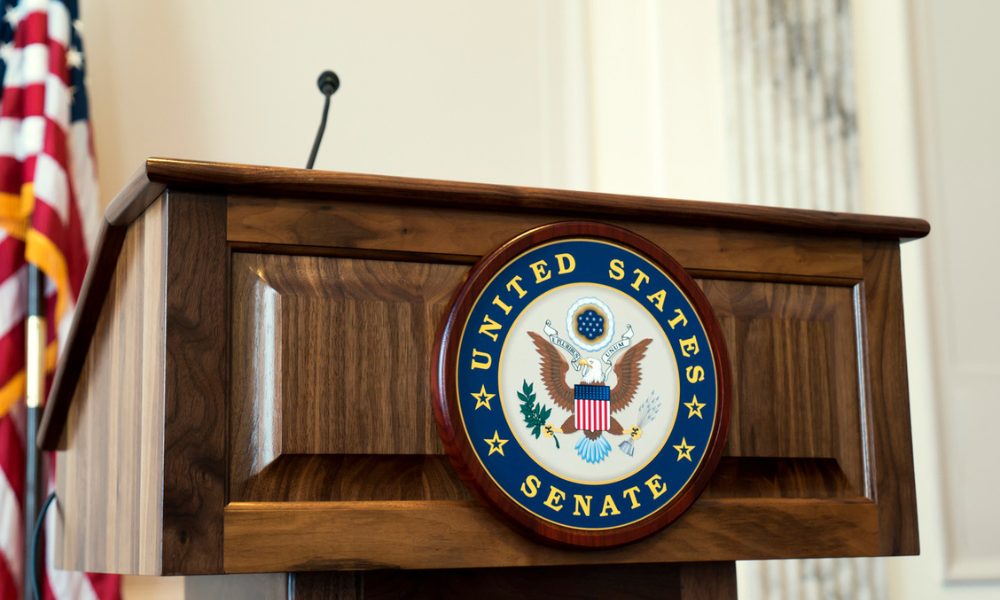Failure to accommodate for automated vehicles within the law could mean Australia misses out on substantial safety, productivity and economic gains.
Clayton Utz is urging the Australian government to quickly establish the proper legal and regulatory framework to be in lockstep with the adoption of fast-developing driverless vehicle technology.
In a new detailed report titled “Driving into the future: Regulating driverless vehicles in Australia,” the top firm makes recommendations hinting that failure to accommodate for automated vehicles within the law could mean Australia misses out on substantial safety, productivity and economic gains.
However, Clayton Utz recognises that the topic is especially complex since the regulation of ordinary motor vehicles is itself already intricate.
Nonetheless, there is an urgent need to address the issue of a legal framework that supports the testing, introduction and safe operation of driverless vehicles, the firm noted. It said some reports predict all vehicles in Australian roads will be automated vehicles by 2030.
To help ease dealing with the complex issue, the firm suggests addressing key legal risks and uncertainties in a phased manner to maximise the potential future benefits of driverless vehicles, such as fewer road fatalities and reduced congestion.
"The National Transport Commission has already undertaken some valuable work in identifying regulatory barriers for automated vehicles and options to address these," said Clayton Utz partner Owen Hayford, one of the report's key authors.
“Our report seeks to build on that and identify some of the key areas that legislators and regulators can start looking at now to ensure a clear and consistent approach to issues such as liability, and, at a Federal level, minimum safety design standards.”
Hayford pointed out that Australian companies such as Fortescue Metals Group and Caterpillar already have substantial experience in deploying automated and driverless vehicle technologies in their industries.
He said Australia “can draw on their experiences and lessons learned to inform a best practice legal framework as driverless cars become mainstream.”
One of the most pressing issues identified and discussed in the report is liability and associated insurance arrangements.
Commercial litigation partner Greg Williams, who also contributed to the report, said it highlighted the future need to deal with this “big and complex” issue.
“One of the big questions is who should be legally responsible for the automated driving system if it infringes road rules or causes an accident. One of our recommendations is that the concepts of ‘driver’ and ‘proper control’ as currently defined by the Australian Road Rules and related laws be clarified to smooth the path for conditionally automated vehicles, and ultimately reviewed to take into account the operation of highly and fully driverless vehicles,” Williams said.
“Given the technology involved, consideration also needs to be given to how the law deals with issues around access to data generated by automated and driverless vehicles, privacy, and of course, the very real concern of cybersecurity.”
To start accommodating for a future where automated vehicles is the norm, Williams said that creating a safe environment for testing of driverless vehicles on public roads will be a good first step.
He noted that South Australia has already modified some laws to accommodate for testing, but this is done on a case-by-case basis.
“Making it easier for manufacturers to carry out public road testing could see Australia become one of the first countries in which driverless vehicles are widely deployed,” he said.
He also identified the knowledge to be gained by being a trailblazing country in this industry, as well as the subsequent economic gain this knowledge will cause.
“This would facilitate not only early access to the road safety, productivity, mobility and other benefits that driverless vehicles offer, but also facilitate the local development of associated industries and know-how that can be exported around the world,” Williams said.
In a new detailed report titled “Driving into the future: Regulating driverless vehicles in Australia,” the top firm makes recommendations hinting that failure to accommodate for automated vehicles within the law could mean Australia misses out on substantial safety, productivity and economic gains.
However, Clayton Utz recognises that the topic is especially complex since the regulation of ordinary motor vehicles is itself already intricate.
Nonetheless, there is an urgent need to address the issue of a legal framework that supports the testing, introduction and safe operation of driverless vehicles, the firm noted. It said some reports predict all vehicles in Australian roads will be automated vehicles by 2030.
To help ease dealing with the complex issue, the firm suggests addressing key legal risks and uncertainties in a phased manner to maximise the potential future benefits of driverless vehicles, such as fewer road fatalities and reduced congestion.
"The National Transport Commission has already undertaken some valuable work in identifying regulatory barriers for automated vehicles and options to address these," said Clayton Utz partner Owen Hayford, one of the report's key authors.
“Our report seeks to build on that and identify some of the key areas that legislators and regulators can start looking at now to ensure a clear and consistent approach to issues such as liability, and, at a Federal level, minimum safety design standards.”
Hayford pointed out that Australian companies such as Fortescue Metals Group and Caterpillar already have substantial experience in deploying automated and driverless vehicle technologies in their industries.
He said Australia “can draw on their experiences and lessons learned to inform a best practice legal framework as driverless cars become mainstream.”
One of the most pressing issues identified and discussed in the report is liability and associated insurance arrangements.
Commercial litigation partner Greg Williams, who also contributed to the report, said it highlighted the future need to deal with this “big and complex” issue.
“One of the big questions is who should be legally responsible for the automated driving system if it infringes road rules or causes an accident. One of our recommendations is that the concepts of ‘driver’ and ‘proper control’ as currently defined by the Australian Road Rules and related laws be clarified to smooth the path for conditionally automated vehicles, and ultimately reviewed to take into account the operation of highly and fully driverless vehicles,” Williams said.
“Given the technology involved, consideration also needs to be given to how the law deals with issues around access to data generated by automated and driverless vehicles, privacy, and of course, the very real concern of cybersecurity.”
To start accommodating for a future where automated vehicles is the norm, Williams said that creating a safe environment for testing of driverless vehicles on public roads will be a good first step.
He noted that South Australia has already modified some laws to accommodate for testing, but this is done on a case-by-case basis.
“Making it easier for manufacturers to carry out public road testing could see Australia become one of the first countries in which driverless vehicles are widely deployed,” he said.
He also identified the knowledge to be gained by being a trailblazing country in this industry, as well as the subsequent economic gain this knowledge will cause.
“This would facilitate not only early access to the road safety, productivity, mobility and other benefits that driverless vehicles offer, but also facilitate the local development of associated industries and know-how that can be exported around the world,” Williams said.







